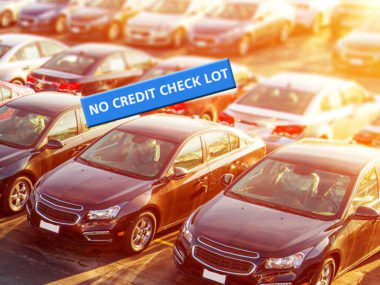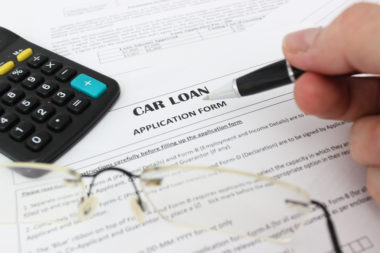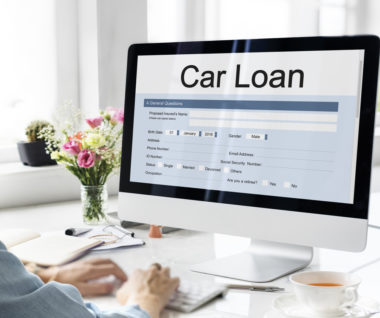Whether you’re searching for a brand new car or a used one, buying from a dealership or a private seller, you should know that you’re getting the best deal possible. You should feel confident in asking for a lower price when appropriate and not be swayed by enticing promotions and sales tactics. In this guide, I’m going to walk you through everything you need to know in order to turn yourself into a negotiation pro. No matter where you’re shopping, you’ll be prepared to get the absolute best deal out there.
Table of Contents
Know Your Budget and What You’re Willing to Pay
When you decide to buy a car, obviously a very large piece of that puzzle has to do with price. As such, it’s important that you take a detailed look at your finances before setting a strict budget. Factor in all of your bills, rent, food, and other monthly expenses in order to see what wiggle room you have left over.
After you’ve got your balance sheet filled with all of your monthly expenses, you’ll have a pretty good idea of what sounds like a comfortable monthly payment if that is what you’re going for. You may decide to take that money and start saving up if you’d like to buy straight up from a private seller instead of getting an auto loan or leasing a car from a dealer. What’re more, you might need to think about saving up for a down payment in any case.
Regardless, as you’re taking a look at your finances, try to pick a number that sounds reasonable for you to achieve each month. Maybe you want to put aside $200 per month either on a car rental or saving up for your car. If you’ve examined your income and $200 is the maximum amount you can spare, I suggest that you try to do a bit less than that. Realistically, things are always more expensive than you expect. You don’t want to have your entire monthly income tapped out because a bill was higher than expected or you spent a little bit more in another area of your budget.
Shoot for a number that still gives you some space in your budget for things to shift. If everything goes perfectly to plan and you still have leftover money in your budget, you can always choose to save a bit more or pay more on your auto loan. Now, once you start shopping for cars, you can have an idea of what your total purchase amount will be and if you’d like to try and stay below your absolute maximum budget.
Lastly, remember that when you’re purchasing a car with a loan, you’ll have additional fees and taxes added into your final number. For example, if you’re max loan budget is $10,000, you’re actually going to want to find a car for eight or nine thousand. Anything more than that might actually end up exceeding your budget when all is said and done. You can talk to your bank about this during the pre-approval process in order to make it clear exactly how much you have to spend.
Know the Car’s Value
By this point you’ve already decided whether or not you’d like to go with a lease or purchase from a private seller. You can start doing some research on cars that might fit into your budget and have similar features to what you want. Check out the listing and write down as many details as you can about the car. The listing should include all features (like A/C, radio, heated seats, power windows and locks, etc), all repairs done to the car, the mileage, and any current problems the car might have.
Once you have this information, you can take a look at car pricing sites, like Kelley Blue Book, to see what the car’s true value is and make sure that aligns with what the dealer is asking. If it doesn’t, you can use the Kelley Blue Book pricing to show the seller and gently ask why they are asking for a higher price. The first step is arming yourself with knowledge about the car you’re interested in. Know the true asking price according to the current condition of the car that’s for sale.
Often times, you will find that a car dealership will boost up their prices. They know what the asking price is, and they know that negotiation will be involved, so they jack up the prices in order to still get a great deal in the end. They might expect that customers will ask them to come down several hundreds of dollars, but the number that they land on might still be higher than what you would pay for a used car on the street. Just be aware of this and what is actually a fair price to pay for the car, don’t pay more than you have to.
In the case of you buying a new car, sadly you have might have less room to negotiate. However, compare the price listed at other dealerships online and have it priced through somewhere like Kelley Blue Book and maybe even through the manufacturer’s website as well. You can then take this knowledge to the dealer to negotiate if their price is higher than other dealers in the area. Again, dealers do their homework and know how much the car is worth. With a new car, it is expected that they will ask for no less than what the manufacturer is saying it’s worth. However, make sure that they aren’t trying to get you to pay more than that.
Don’t Get Emotional
This is easier said than done, but it is so crucial when you’re shopping for a car. It’s very easy to become attached to a nice car that you see or become flustered during the negotiation process. The best way to combat these feelings is to do your research. If you know exactly how much the car is worth and what other people’s listing price is, you’ll know what is a pretty standard price and what is not.
It’s possible that you might run into a dealer or seller that is not willing to negotiate price with you. They’re very set on their price whether it is reasonable or not. In these cases, it’s easy to get upset because you were really set on getting that car. I suggest that you have several different options for cars so that you don’t feel like this is the only option. You should feel confident enough in your research that you can walk away from a deal when you know it’s bad. Don’t get attached because there is another car out there that is perfect for you, it’s okay if this one doesn’t work out.
Negotiating with Dealers
Get Multiple Quotes
Before you zero in on one particular car, shop around to a few different dealerships. Take a look at what prices they’re offering and maybe even ask them what the total sale price would look like for you. Don’t get too deep into the conversation, but show that you’re interested and what you’re shopping around.
If a dealer is really looking to separate with a car, they might try and sweeten the deal for you by supposedly giving you a lower price or some special offer that they’re running right now. Don’t be too swayed by anything just yet. This should just be a first step towards finding the best price. Check multiple dealers and compare their pricing to what you’ve been offered. You might find that dealers who throw in special offers and seemingly lower the pricing for you are doing it more for show and that you can actually find better pricing elsewhere.
Shop During Off Hours
This is a great tip when you’re just beginning your shopping process. As soon as you walk onto a lot, you’re likely going to be approached by a salesperson. They’re going to throw a lot of questions and offers at you and you don’t want to be blinded by what they’re saying.
As such, checking out some cars during off hours lets you take a look at the car in much more detail without being distracted by questions and offers. This gives you some time to do your own calculations as far as monthly payments and fees go. It’ll give you more time to collect your ideas about the car, questions you might have, and set a solid budget for the car. This way, when you talk to a dealer about the car, you’ll already know what is fair and what you’re willing to pay for the car.
Stay Focused on the Price
A dealer might tell you that the monthly payments are going to be incredibly low or that they can get you a loan with no interest or something similar. Don’t be fooled by smoke and mirrors. You don’t want to be tricked into ultimately paying more for the car than it is worth. Even if you’re monthly payment is low, you might be paying that for several years and end up vastly overpaying for the car. Make sure that you sit down and do the math before you agree to anything. You should know if the total price that you’re paying aligns with what the car is worth — period.
Know Which Fees are Negotiable
When it comes down to it and you’re negotiating with the dealer, they’ll likely tell you what the price might look like after fees, taxes, and all that. However, you should know that some of those prices are non-negotiable. Fees from the bank and taxes are going to be included in the price no matter what. That’s why when you’re shopping around, you shouldn’t go for a car that has a base price that maxes out your budget. As the dealer what the total sales price will look like for you.
Shopping with the sales price in mind, you can start to negotiate that base price that is usually listed on the windshield of the car in big, bright numbers. That’s the price you want to try and get a little bit lower. You don’t want to agree to a price, have a document written up, and then be unhappy with the price. Because the price after the fact, with fees and taxes included, is going to be non-negotiable.
Negotiate Your Trade-In Separately
In many cases, the dealer will ask you if you’d like to use a trade in car as a down payment or if you’d like to knock off some of the price of your purchase with the trade in of a car. Although it sounds nice, because your price will the lower, don’t do it. If you have a car to trade in, do it before you start negotiating price at all. Offering a trade in conjunction with your sale allows the dealer to offer you much less for your trade in than is reasonable.
If this is something you’re interested in doing, make sure you also know the value of your trade in car and be willing to walk away from a dealer offer. They will often try to gouge your trade in price by saying there is much work that they have to do in order to make it sellable, so they offer you a very low price. If that’s the case, it might be in your best interest to sell it privately instead. You know what it’s worth in its current condition and you shouldn’t take much (or any) less than that number.
Always Be Ready to Walk
After all of your hard work and research, it can be hard to walk away from a car that you know is great for you. However, remember that there are likely more models of the same car available near you. If that particular model isn’t available, you can find something comparable and/or possibly even better than you expected.
Getting locked in to an expensive loan can really mess up your finances and could eventually lead to you not being able to make the monthly payments. It’s imperative that you only agree to a deal that you undoubtedly feel confident about. If someone is pressuring you to move outside of your financial comfort zone, be ready to hold firm and walk away if they aren’t willing to work with you.
If you’re buying from a private seller, this is equally as important. Just because you might be paying a little bit less than you would at a dealer, doesn’t mean that you shouldn’t get the best deal possible. You should know wholeheartedly that the car you’re buying is worth every penny. If the dealer seems to think it’s worth more than you believe to be reasonable, it’s time to walk away.
There you have it! When it comes down to it, the key to negotiation is all about informing yourself properly. If you skip any of these steps and don’t do your research, it’s possible that someone could dupe you into a less than perfect deal. However, if you take your time, don’t get attached to any particular car, and know how the process works, you can prepare for anything. As long as you are armed with knowledge and you won’t settle for anything less than fair, you’ll walk away with a deal you can be proud of.
Image Source: https://depositphotos.com/





